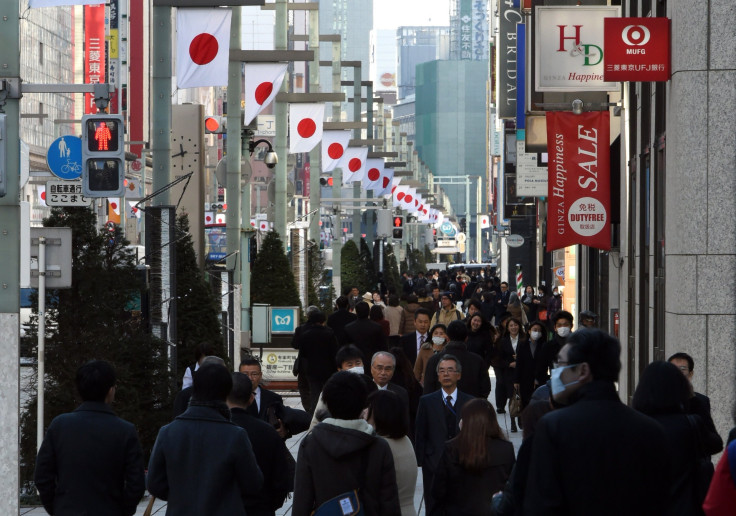Japan Inflation Edges Up In November, But Weak Spending Continues To Weigh On Growth

Consumer prices in Japan rose for the first time in five months in November, ending a downward spiral that has long weighed on growth in the world’s third-largest economy. However, household spending and incomes continued to tumble, indicating that the economy, which narrowly avoided a recession in the previous quarter, is still struggling to recover.
The Consumer Price Index (CPI) was up 0.3 percent in November from a year earlier, but down 0.3 percent from October, government data released Friday showed. Core inflation, which excludes the volatile fresh food prices, rose 0.1 percent from a year earlier, following a 0.1 percent drop in October.
“The downward pressure from falling oil prices seems to have run its course, which helped core CPI rise,” Hidenobu Tokuda, a senior economist at Mizuho Research Institute, told Reuters. “But consumer prices likely won't rise as fast as the BoJ [Bank of Japan] projects. We expect the central bank to ease next year.”
The BoJ, which recently outlined supplementary measures for its massive quantitative easing program, aims to achieve a target of 2 percent inflation at “the earliest date possible.” Earlier this year, BoJ Governor Haruhiko Kuroda said he will do whatever it takes to achieve the ambitious price goal, which the central bank expects to meet around the six-month period through March 2017.
However, Friday’s data, which shows that household spending suffered the biggest annual fall in eight months — down 2.9 percent in November from a year earlier — and incomes fell 1.4 percent from the year before, underscores the fragile state of the country’s economy.
The BoJ sees a rise in wages, which have continued to fall despite signs of a tight labor market, as a key factor in achieving its inflation target, as more money in shoppers’ pockets is likely to spur spending.
So far, repeated calls from Japanese Prime Minister Shinzo Abe to boost wages have not yielded the desired results, as companies have reportedly resorted to hiring temporary help and investing their surging profits overseas rather than raise incomes.
© Copyright IBTimes 2024. All rights reserved.












